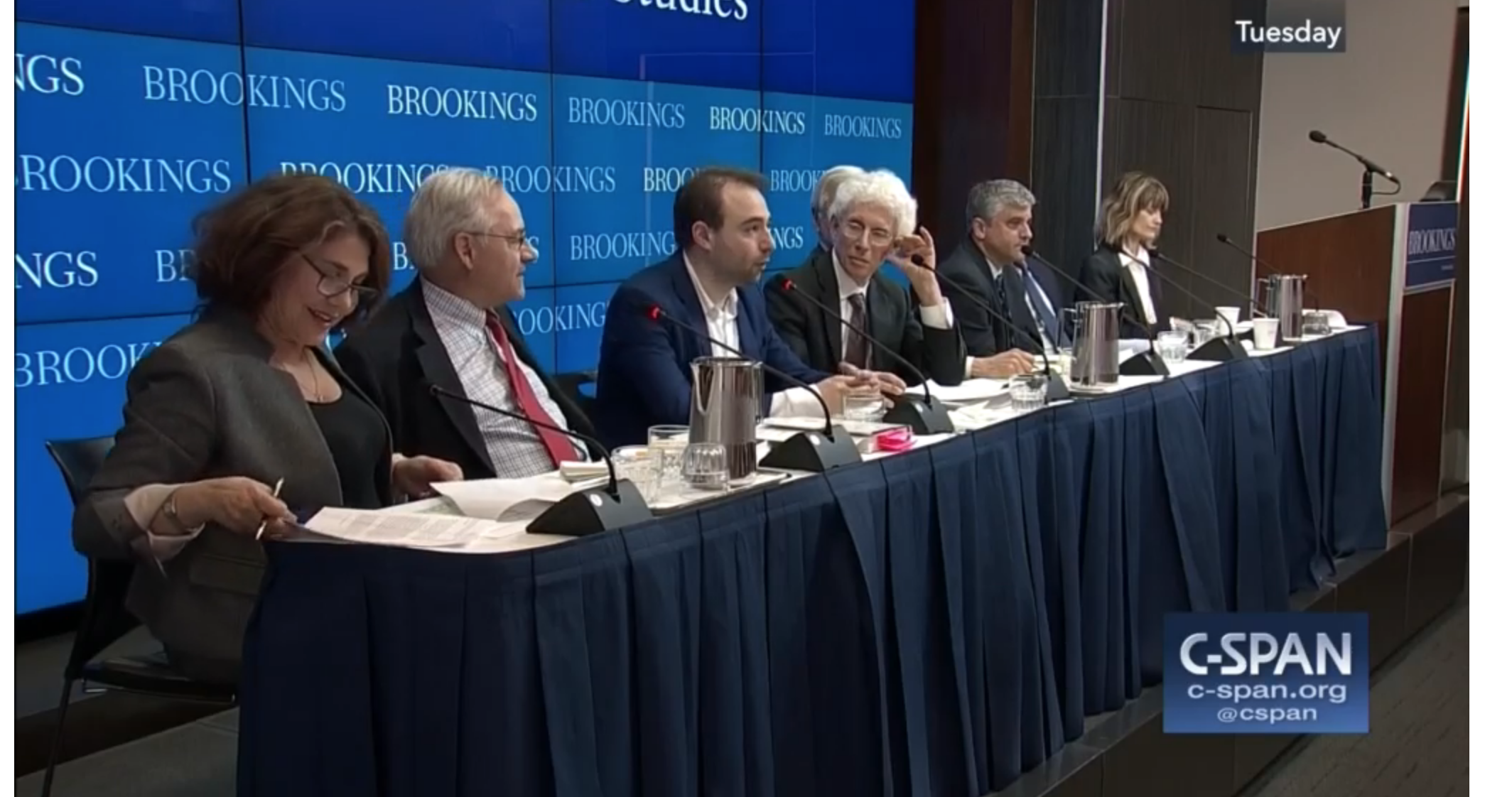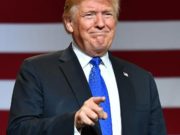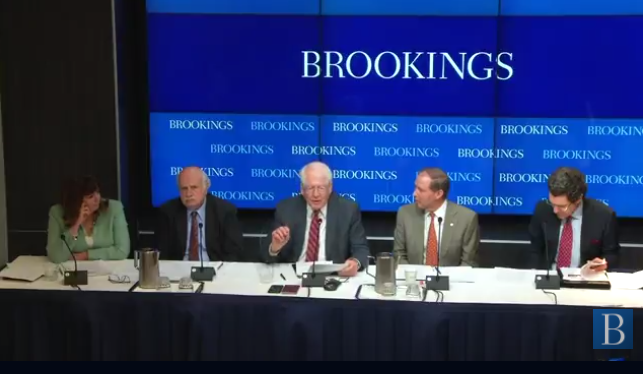On Tuesday, the Brookings Institution held an event entitled “Democracy’s resilience: Is America’s democracy threatened?” During the event, a panel of scholars discussed trends in U.S. and global democracy, as well as the potential erosion of democratic institutions. The panel featured E.J. Dionne, William Galston, and Thomas Mann of Brookings, and Steven Levitsky, Yascha Mounk, and Daniel Ziblatt of Harvard University. The panelists collectively have written four new books relating to the topic of democratic institutions, some of which have touched upon the role of free speech. The event was moderated by Gretchen Helmke and Elaine Kamarck.
Much of the event was spent discussing the general degradation of democratic institutions in the western world. The panel discussed the symptoms and causes of this decline by pointing to many different factors: racial divisions, economic anxiety, backlash to immigration, loss of faith in governing and cultural institutions, and political populism.
It was only during the Q&A section when the topic of political speech was raised, as if it were a kind of elephant in the room. The questioner pointed out that there had been no discussion of the role of foreign interference and “big money” in elections, which she claimed swung the electoral results of Wisconsin and other closely-contested swing states in 2016. Mann responded by remarking that 2016 was such a close election that there were any number of factors that could have tipped it – such as James Comey’s letter on his re-opening of the Clinton e-mail investigation.
Mann didn’t totally dismiss the premise of the question though, saying that the post-Citizens United environment allows bad-faith actors to use political speech to “discourage” certain people from voting (rather than persuading them), which makes American elections more vulnerable to foreign intervention. However, foreign actors played a tiny role in 2016 political advertising, and the premise that more speech is harmful to democracy is antithetical to the First Amendment. It blames “bad” outcomes in politics on the freedom to express “bad” ideas, rather than putting the burden on others to counter that speech with more persuasive, “better” speech, or on voters to make the right decision when equipped with enough information.
The contrast in mindset between the panel and the questioner is worth noting. The questioner had taken for granted that political speech from wealthy individuals and groups is one of the main threats to American democracy. This echoes activist groups who believe that more political speech regulation is necessary to make progress on any other issue area. Even if the panelists are sympathetic to speech restrictions on policy grounds, they plainly did not view them as urgently needed for democracy to survive. This mindset bears out in public polling as well, which shows that Americans tend to place campaign finance and political speech restrictions quite low on their list of political and policy priorities.
The event made clear that trends like increased polarization, decreased trust in media and government, and other grievances are seen by political scientists as the main risks to democracy. This is wise because it is votes, not spending, that ultimately shape political outcomes. Indeed, election outcomes often turn against those who have spent the most. Elections do not hinge on who spends the most money, so political spending does not inherently undermine democratic institutions. When comparing the strength of differing democratic institutions, political spending seems to fade as a cause for concern. Indeed, many of the troubled countries that the panelists cited, like Hungary, are those that tend to not just be younger democracies, but also those where liberal values like free speech have had a weaker hold on their societies historically.
Another exchange during the Q&A elucidated why free political speech is actually essential to democracy. One questioner asked the panel what they would choose if given the choice between democracy and liberalism – “liberalism” in this case referring to the protection of fundamental rights, regardless of what democratic outcomes are. Those who answered the question generally agreed that both liberalism and democracy must exist together. Undemocratic liberalism would only foster backlash from those who feel unrepresented by the system, while illiberal democracy would undermine the fundamental rights needed for a democracy to function at all. Understanding free speech as one of the central tenets of a liberal system that makes democracy more vibrant, it would make no sense to consider more speech to be corrosive for democratic institutions rather than a key ingredient to their success.
In this event, the absence of a wide-ranging discussion of political speech spoke louder than its inclusion would have. All democracies face challenges, and some think that our current time presents greater and more unique challenges than ever before. But the ability to spend money to express political opinions is simply not one of those challenges. In fact, it is an essential tool for societies to openly grapple with their own problems through public discourse. Not only can we have a healthy democracy with robust free speech rights, but we must have those rights to preserve it.














